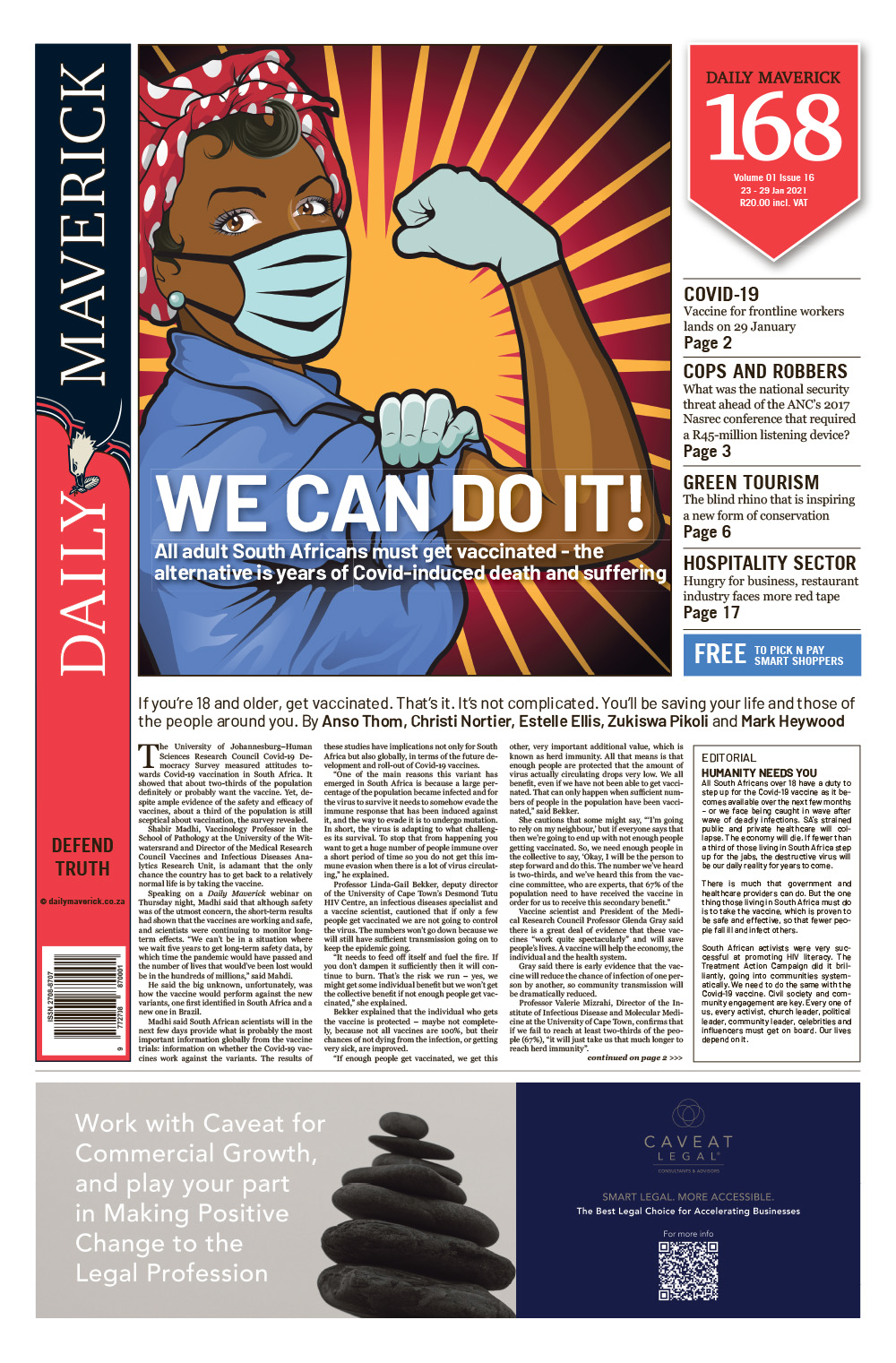First published in the Daily Maverick 168 weekly newspaper.
To put it in context, that is 75% more than at the same time in 2019. This is according to National Treasury, which releases a monthly update on SA’s revenue, expenditure and borrowings. By the end of the financial year, this figure is likely to be closer to R710-billion, Treasury estimates.
The difference is not because the state is necessarily spending that much more – government has been forced to slash capital expenditure left, right and centre – but because its income has fallen off a cliff.
The economic devastation wrought by the Covid-19 lockdowns means that revenue to November amounted to R692.5-billion, considerably less than the R807-billion generated by November 2019.
Expenditure, of course, continues on much the same trajectory, despite budget cuts, as this year the country has had to bear the cost of Covid-19.
By the end of November 2020, the state had spent R1.130-trillion, compared with R1.054-trillion by the same time last year – a difference of R84-billion. This is not an insignificant number.
The budget deficit is now estimated to reach 14.6% of GDP, rather than the 6.8% pencilled in February.
Figuring out how to balance this budget and stave off a debt crisis (not to mention a humanitarian one) must be occupying the team at Treasury and explains why the finance minister hasn’t shared any pics of his latest meal concoctions on Twitter.
In October, Mboweni warned that tax increases of R40-billion could be expected over the next four years. But I can’t help wondering if that figure is feasible. After all, over the last few days, there has been much talk of taxes being used to fund everything from the vaccine rollout to renewed efforts to curb excessive alcohol consumption. While I have no objection in principle to funding (through direct or indirect taxes) something as important as this – not to mention houses, schools and running water – I do object to being treated as a cash cow by a government that cannot treat my contribution with the respect it deserves.
I heard the other day that SA’s Tax Freedom Day could move from 19 May to some point in mid-June. This is the point in time that the “average” person would have to work until, just to pay off their taxes. From that date onwards we are working for ourselves.
It is an illustrative number that is calculated by dividing general government revenue by GDP at market prices, then multiplying the result by the number of days in a year, and finally adding a day.
Of course, in SA, with its grossly unequal society, the “average” taxpayer is the 12% of the population that is registered with SARS.
But that is detail. Everyone pays tax in one way or another – through VAT, fuel, sin taxes or road tolls. The point is that every rand you earn for the first six (it used to be five) months of the year goes to funding government. I should add that this is not dissimilar to anywhere else in the world. In the US and UK, Tax Freedom Day is in May; in France it’s in July and in countries like Ireland, Cyprus and Malta it’s in April.
The issue that all of SA’s taxpayers grumble about is what government actually does with that revenue. The implementation of aggressive taxation policies has a noble goal – to redress inequality in South Africa by taking from the haves and giving to the have-nots. I don’t think anyone quibbles with that. But this is not working. We can all see that. Despite all of the redistribution, inequality and unemployment continues to rise – along with government debt.
The problem with South Africa’s economic environment is that the government tries to do and control every aspect of the economy. Anyone remember its insistence that it handle the distribution of food parcels during the hard lockdown? And how well did that go?
Instead, government should do less if they want the country to improve. The Covid-19 crisis has precipitated a never-seen-before public-private partnership that I believe has opened both sides to the fact that we are – as Siya Kolisi said so powerfully – “Stronger Together”. The answer to our fiscal crisis does not lie in higher taxes. While probably essential at the moment, in the longer term these are likely to be counterproductive and probably destructive. The solution to permanently reducing poverty and improving the economy is to trust business to do what it does best, to adopt policies that promote economic growth and expand opportunities for the unemployed.
It is not government, but private firms and individuals, that generate wealth and cause the economy to grow. DM168
This story first appeared in our weekly Daily Maverick 168 newspaper which is available for free to Pick n Pay Smart Shoppers at these Pick n Pay stores.


















Comments - Please login in order to comment.